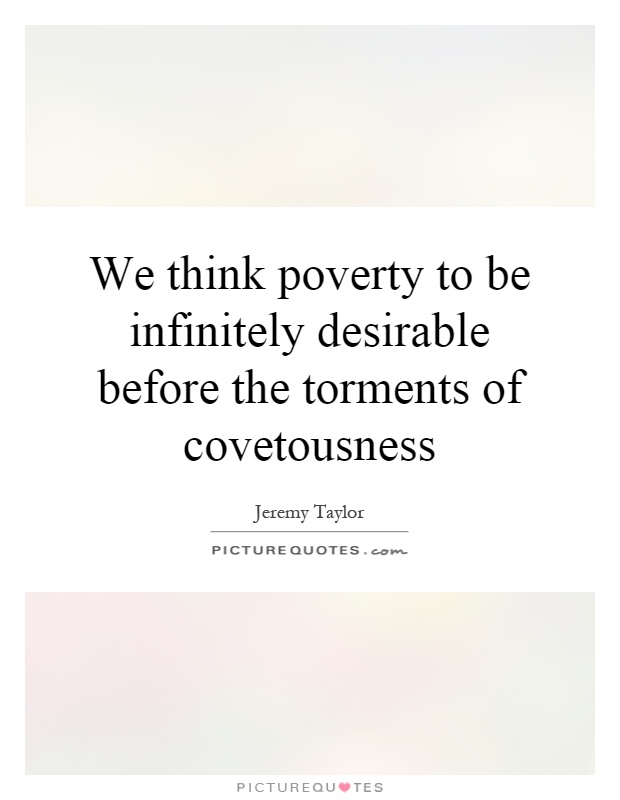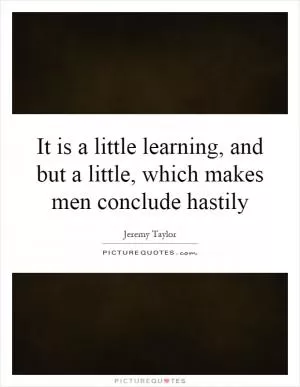We think poverty to be infinitely desirable before the torments of covetousness

We think poverty to be infinitely desirable before the torments of covetousness
Jeremy Taylor was a 17th-century Anglican bishop and theologian known for his eloquent writings on spirituality, morality, and the human condition. In his works, Taylor often explored the themes of poverty, wealth, and the dangers of covetousness. One of his most famous quotes, "We think poverty to be infinitely desirable before the torments of covetousness," encapsulates his belief that the pursuit of material wealth can lead to spiritual poverty and moral decay.Taylor's statement reflects a deep understanding of human nature and the pitfalls of greed and avarice. He suggests that the desire for wealth and possessions can be all-consuming, leading individuals to prioritize material gain over spiritual fulfillment and ethical behavior. In contrast, Taylor argues that poverty, while often associated with hardship and deprivation, can be a source of humility, simplicity, and contentment. He implies that the suffering caused by poverty is preferable to the moral and spiritual corruption that can result from an insatiable desire for wealth.
Taylor's perspective on poverty and covetousness is rooted in his Christian faith and his belief in the importance of spiritual values over material possessions. He warns against the dangers of greed and the negative impact it can have on individuals and society as a whole. By prioritizing material wealth and possessions, Taylor suggests that individuals risk losing sight of their moral and ethical responsibilities, leading to a loss of integrity and virtue.
In today's consumer-driven society, Taylor's message remains relevant as ever. The relentless pursuit of wealth and possessions can lead to a sense of emptiness and dissatisfaction, as individuals seek to fill a spiritual void with material goods. Taylor's words serve as a reminder of the importance of prioritizing spiritual and moral values over material gain, and the dangers of allowing covetousness to dictate our actions and decisions.












 Friendship Quotes
Friendship Quotes Love Quotes
Love Quotes Life Quotes
Life Quotes Funny Quotes
Funny Quotes Motivational Quotes
Motivational Quotes Inspirational Quotes
Inspirational Quotes